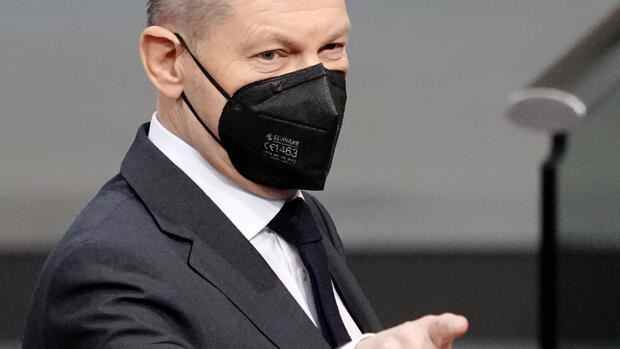The new traffic light coalition achieved several things that seemed unthinkable twelve months ago. The fact that FDP leader Christian Lindner and SPD co-leader Saskia Esken would appear together in front of the cameras to announce the start of a joint government belongs in this category.
Likewise, the coalition agreement negotiated by this alliance, which came into being largely without public disputes, secret piercing and personal attacks. Even in the SPD, twelve months ago, hardly anyone would have dared to hope that Olaf Scholz would be elected Chancellor.
In the election campaign, this Olaf Scholz had little more to do than embody the reliability that the Union had lost. And now he had actually succeeded in generating something like a spirit of optimism: that too is one of the improbable details of this improbable coalition.
But the Hermann-Hesse-bliss of the past few weeks has evaporated. The country is in the fourth wave of corona. Because of the overloading of clinics, terminally ill people have to be flown across the country, orders in the industry collapse by almost seven percent, and economic aid for companies is entering the next round.
Top jobs of the day
Find the best jobs now and
be notified by email.
In the next few months, Scholz will primarily be measured by whether he can restore the trust in politics that has been lost after the chaotic crisis management and the broken word of the politicians regarding the compulsory vaccination.
The New Chancellor, Scholz, is now first of all to become the Crisis Chancellor, Scholz. As necessary as that is, it is not enough.
The traffic light had set itself big goals under the motto “Dare to make more progress”.
(Photo: imago images / Political-Moments)
The virus is the most pressing current problem. But good political leadership is characterized by the fact that it not only comes before the short waves – but also before the great, historical waves.
Traffic lights must actively assert themselves
The greatest danger for the new federal government is to change from an action alliance to a reaction alliance that is primarily concerned with solving acute problems – and thereby losing sight of the big questions, in the unpleasant tradition of the late Merkel years.
These open questions include, for example, how the green restructuring of the economy should be financed in concrete terms. There is also the question of how European industrial companies that have to pay high CO2 prices should keep pace with those worldwide who do not pay this tax.
Also unclear: where the money for the many ideas from the coalition agreement will come from. A stable pension, basic child benefits, investments in climate protection, super write-offs: each and every one of these promises costs many billions, and that is only a selection. “The budget is oversubscribed many times over,” says the traffic light coalition.
And now the corona aid for companies has to be extended again. The financial leeway for the great departure is shrinking every day.
The new government is relying on a green investment boom because companies are buying more efficient systems and machines. But so far they have done the math without the companies. Their willingness to invest is currently decreasing, according to a current DIHK survey.
The reasons for this are high energy costs, a lack of skilled workers and high corporate taxes, all of which make the location less attractive. A worrying finding. The new federal government must resist the reflex of constantly burdening Germany as a business location with new rules.
Coalition agreement offers opportunities
Many chapters in the coalition agreement are little more than a collection of correct, but often too vague ideas. The traffic light is committed to increasing national spending on research and development to 3.5 percent of economic output by 2025. Otherwise, however, the evoked departure remains vague.
The new coalition will be more specific when it comes to expanding the welfare state: The minimum wage is to rise quickly to twelve euros, Hartz IV will be replaced by a citizen’s allowance. The foreseeable pension crisis, however, is simply ignored by the new coalition. The new Chancellor Scholz will also be measured by whether his federal government can find answers to these big questions.
The prerequisites for this to succeed are not bad at all. Because the three most important players are in competition for something good: If Robert Habeck really wants to recommend himself for something even higher, the Green Vice Chancellor has to show that Germany can actually achieve its ambitious climate goals – without German industry falling by the wayside.
Christian Lindner, in turn, has to develop a financial policy that is appropriate for this period and that makes all the necessary investments possible – without giving up the German culture of stability.
- Your comment in the Handelsblatt: What do you expect from Scholz as Federal Chancellor? Write to us, either by email [email protected]tt.com or on Instagram at @handelsblatt.
And Olaf Scholz has to bring all of this together into a narrative of the new beginnings. Only then will the government be able to explain the many unreasonable demands that this country will face in the next few years.
Incidentally, such an unlikely alliance will only be successful if the protagonists can treat each other to success. The coalition negotiations have shown that the three new partners are quite capable of this. After all, that is more than can be said of the grand coalition’s last few years.
More: Financing of the traffic light projects wobbles considerably
